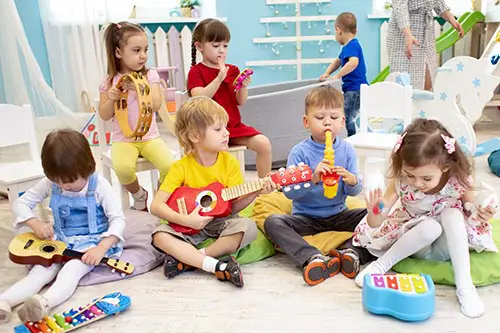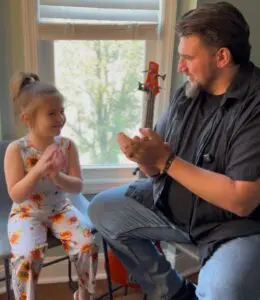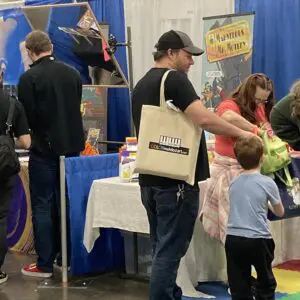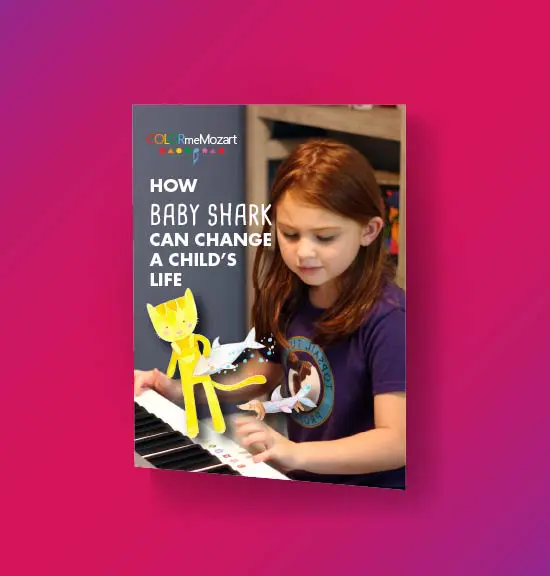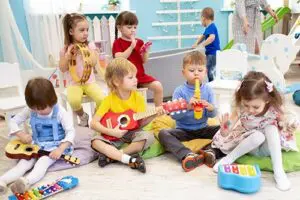
The Problem With Kindergarten Music Curriculum
In all my years of teaching, one thing proved frustratingly common: finding effective and easy-to-implement kindergarten music curriculum was not easy. Don’t get me wrong, there are some great resources out there, however, they are oftentimes scattered, incomplete, and difficult to combine into a simple program. With most industries having caught on and created wonderful systems to learn at an early age, (think coding apps for kids), music has, unfortunately, been lagging behind.
Now your initial response may be, “wait a minute, there are many wonderful music programs out there!” While this is indeed true, all of those programs have a difficult barrier of entry for any early music education program. They involve years of training, additional hoops to jump for what are already extremely busy teachers.
For something to be realistic for a preschool or elementary school teacher, it has to be simple enough to implement without adding an extra burden on their part.
Schools Wait Too Long to Introduce Music Curriculum
Because of these barriers of entry, schools, particularly public schools, wait entirely too long to introduce music education to their younger students. Many schools wait until the third or fourth grade to put an instrument in a student’s hands (and it’s usually the recorder, yikes!). That is completely unacceptable and immediately puts students at a disadvantage of learning music. Think of learning a foreign language later in life. It is difficult and requires extreme effort to become fluent.
Imagine for a minute if we waited that long to teach students their ABC’s, numbers, and shapes. It would be unthinkable and unforgivable, not to mention, add an extra burden on teachers in those grades to make up for lost time.
A Different Approach
What if, instead of waiting so long to introduce music, we created a system that was as simple to implement as teaching the ABCs? I was fortunate enough to grow up in a two-language household and I am extremely grateful for having learned to speak a second language.
Learning music when you are young makes fluency almost certain and it make it easier to be combined with learning other developmental skills like our ABC’s, numbers, shapes, etc.
Budgets Are Often the Culprit
We understand that budgets often prohibit the possibility of bringing in a music program at an early age and that not all parents have access to private music instruction. That is why at Color Me Mozart, we knew that something had to be done to create effective, affordable and easy-to-implement early childhood music education.
Kindergarten and early music education doesn’t have to be complex, but it does have to be available to students. Our system makes that process simple and effective and eliminates the burden for the teacher the need to study music.
Conclusion
Music, we can all agree, is a tremendously important part of our lives and should be a part of a student’s educational experience. The younger a child is exposed to music education, the easier it is to absorb. Much like learning any other subject in school. music is something that can be incorporated into any preschool or kindergarten classroom.
Even introduced simple terms, students can learn real music and also not become an additional burden on an already busy teacher. Reach out to us today to see how powerful and easy it can be to turn your music time into music education time.
As always, happy playing!

